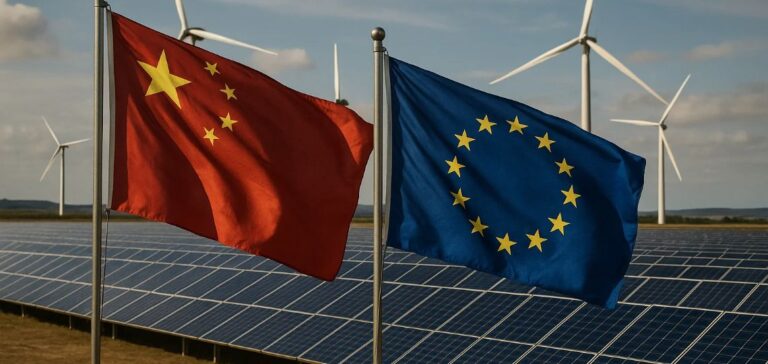French Minister for Ecological Transition, Agnès Pannier-Runacher, expressed her desire to develop stronger cooperation between China and the European Union (EU) in the fight against climate change. Speaking at the ChangeNow conference in Paris on April 24, she emphasized the need for a joint declaration between the two entities in response to the United States’ withdrawal from the diplomatic stage on climate issues. “I carry the ambition that we could have a joint EU-China declaration because I believe that both the EU and China today have real ambitions on climate,” she stated.
This initiative comes in a particular context where China and the EU are called upon to compensate for Washington’s absence on the climate front. On April 23, Chinese President Xi Jinping reaffirmed that China will continue its efforts to combat global warming, despite the United States’ decision to withdraw from the Paris Agreement under President Donald Trump’s leadership.
A common front before COP30
The French minister also referenced the joint declaration signed by the United States and China at the Sunnyland summit in November 2023. This document laid the groundwork for an important agreement ahead of COP28 in Dubai, on the gradual phase-out of fossil fuels. Agnès Pannier-Runacher hopes that a similar approach can be adopted by the EU and China, to maintain multilateral pressure for concrete climate action. A China-EU summit on climate issues is scheduled for July 2025.
European divisions on climate goals
However, France may face divisions within the EU. The 27 member states struggle to agree on greenhouse gas reduction targets for 2035, with some countries, such as Italy, pushing for less ambitious cuts than those proposed by the European Commission, which aims for a 90% reduction by 2040 compared to 1990 levels. France has yet to reveal its position on this issue.
In this context, France’s challenge is to align the different wills of the member states while strengthening cooperation with China, within a broader framework of combating climate change.






















